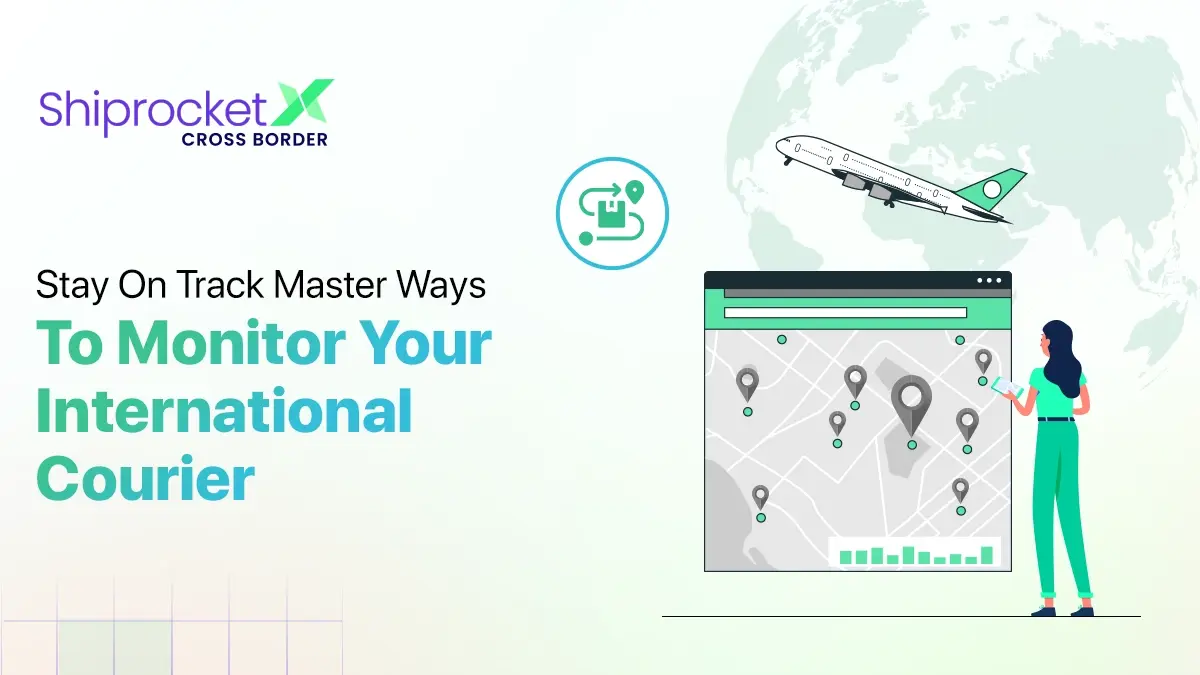Advantages and Disadvantages of Air Transport
Air transport has transformed how we travel or transport goods worldwide. It enhances global connectivity by covering long distances with ease and speed. The flourishing air transport has bridged the vast gaps between continents. It is one of the fastest-growing transportation sectors. Worldwide, the aviation sector employs 87.7 million staff. While air transport has many advantages, it also introduces some challenges and complexities.
In this article, we’ll explore the many advantages and a few drawbacks of using air transport for your trading needs. You can gain many valuable insights to manage the complexities of air transport as you scroll through.

What is Meant by Air Transport?
Air transport, in simple words, refers to the movement of goods or people via aircraft. This transportation mode significantly contributes to global interconnectedness. This facilitates international and domestic trade and travelling across countries. Air transport uses many different types of aircraft for various purposes. Commercial or passenger flights, helicopters, and private jets are available for flying people from one place to another. At the same time, cargo planes are dedicated carriers that move shipments across various destinations globally. There will be freight cargo of some form carried on almost all passenger flights in the luggage hold, also referred to as the “belly.”
Features of Air Transport
Air transport has many attributes that make it one of the most efficient ways of transportation and a preferred choice for moving goods. Here are some of its compelling features:
Speed: Air transport is one of the most dependable modes of transportation due to the speed it adds to the journey. Aircraft can travel at rapid speeds and are faster than any other modes of transport, like sea or road. It allows shipments to reach their destination as quickly as possible.
Dependability: Businesses can rely on air transport’s consistent and strict adherence to flight schedules. It minimises possible delays and helps cargo reach its destination on time.
Accessibility: You can reach the most remote and inaccessible locations with the help of air transport. Accessing secluded areas, like islands, disaster-stricken zones, and mountainous regions, is usually tricky. Aircraft allows you to transport medical emergency supplies, make relief efforts, and even conduct remote business operations in these areas.
Advantages of Air Transport
Here are the advantages of choosing air transport for businesses:
1. Speed and Efficiency
Transporting goods via airways gives you unmatched speed. The fast pace of air transportation drastically reduces transit time as compared to other modes of transportation. It’s one of the biggest advantages of air transport for businesses transporting time-sensitive shipments to distant locations.
2. Global Connectivity
As we know, globalisation has substantially increased international trade. This is especially true for eCommerce businesses catering to international orders. You can use air transport to ship your goods to any part of the globe, even remote or inaccessible locations. Another advantage of air transport for businesses is that it opens up the opportunity to explore previously unavailable markets, driving economic growth.
3. Safety
Air travel is known as the safest mode of transportation due to its rigorous safety standards and use of advanced technology. Moreover, the airways’ staff receive solid professional training that ensures high security for cargo.
4. Reduced Physical Barriers
Certain obstacles along the route, like geographical barriers, may disrupt or impact other modes of transport, like rail, sea, or road. But these physical barriers have zero effect on air transport. Air transport can easily overcome these geographical hurdles and provide a straight path to the destination.
5. High Load Capacity
Besides many other advantages of air transport, another one is the capacity and ability of modern aircraft to carry significant amounts of cargo over long distances. It offers economies of scale that specifically benefit transportation to distant locations.
Disadvantages of Air Transport
With all its benefits, air transport has a few disadvantages and challenges. Here are some of the potential cons of using air transport:
1. Expensive Mode of Transportation
You may find air transport less suitable for low-value goods because of the high expenses. It’s usually more costlier than any other mode of shipping. The costly fuel, high aircraft maintenance, application of advanced technology, and adherence to strict security measures add up to the final price of the air transport services you use for your business requirements. Therefore, air freight services have become a costly deal.
2. Weather Dependency
Air transport is usually affected by weather conditions. Bad weather can become one of the great disadvantages of air transport, more often than not, cause delays, flight cancellations, and route changes. It can technically disrupt your supply chains. This may cause a massive problem for businesses when the shipments arrive late and leave their customers dissatisfied.
3. Environmental Impact
Air transport has a negative environmental impact due to carbon emissions. It’s not an eco-friendly option in a world moving ahead with environment-conscious initiatives and plans. The aviation industry is looking for sustainable measures to reduce its carbon footprint and do its bit to preserve the environment.
4. Infrastructure and Accessibility
There are many destinations, especially in underdeveloped countries or cities, where the need for airports and supporting infrastructure is high. The lack of infrastructure, like airports or other facilities for air transport, means that the place is not always accessible by airplanes and has a limited reach and hence counts into disadvantages of air transport.
5. Noise and Air Pollution
Besides carbon emissions, airports and aircraft also contribute to noise pollution and local air quality issues which is indeed a good reason to say it one of the major disadvantages of air transport.
When Should One Opt For Air Transport?
There are many such situations where you may need air transport for efficient and timely deliveries of goodsl. Here are some of the circumstances where you can take advantage of air transport:
Covering Long Distances: You must choose air transport if you have to transport a shipment to far-off lands, where it may take days to reach through any other form of transport. Air transport is pretty adept at covering long distances in a short time and delivering your goods on time.
Time-Sensitive Deliveries: When you need to deliver time-sensitive shipments, it is best to opt for air transport. These shipments have fixed timeframes for delivery and need fast transportation. You may want to ship essential medical supplies, perishable goods, or urgent documents. Air transport is pretty much capable of delivering these items to your desired destination in a short period.
Emergency Situations: Air transport is a reliable option during many emergencies. Whether you need to deliver emergency medical supplies to earthquake-stricken regions or airlift patients to medical facilities, you can rely on air transport to reach the destination swiftly.
Things One Needs to Know Before Shipping Goods by Air Transport
You must keep a few things in mind before shipping your goods by air. Every airline has set its requirements and restrictions. Therefore, you must consider the size of your shipment, the type of goods, or the number of items you need to transport via air, to adhere to the specifications and regulations of the airline you’re choosing.
Then you’ll need to figure out a few details to understand the complete air transport operations. You must take note of the location of your goods, the airport from where your goods will fly, and any other relevant information you may need about the destination.
Airlines may not allow the transporting of certain types of goods. So, it’s important to know the characteristics of the goods you want to import or export. It helps you decide if air transport is the best option for your shipment or not.
Conclusion
In conclusion, air transport has been an important factor in changing the way transportation of goods has been carried out. You can rely on airways for speedy and safe international delivery of shipments. Moreover, air transport also gives you access to a wide global network, which covers several remote and inaccessible areas as well. Apart from air transport services, a reliable logistics partner like CargoX is also inevitable for efficient international air cargo shipping. CargoX is a leading name in the logistics industry, having a presence in more than 100 countries. Their features include instant quotes, pick-up within 24 hours, digitalised procedures, total visibility of shipments, lucid invoices, simple record keeping, a vast network of couriers, etc.
Sea freight is a viable alternative to air transport. You can take the sea route for international shipping. It is usually better for very large (non-time-sensitive) shipments and is more cost-effective.
Many reasons contribute to making air transport heavy on your pockets:
Fuel: Fuel costs are very high as aircraft consume an enormous amount of aviation fuel, especially during long-haul flights. These fuel prices depend on the fluctuating global oil prices, which add to operational costs.
Airport fees: Airlines pay for using airport facilities, which include landing fees, gate fees, and charges for air traffic control services. These fees may vary depending on the airport the airline is using, which significantly impacts the cost of air transport.
Safety and security measures: The extensive measures the airlines use to ensure the safety of cargo are quite costly. Safer equipment, insurance coverage, etc., inflate the cost of air transport.
Space and weight limitation: Aircraft can only carry a specific amount of cargo as they have limited space and strict weight restrictions. Thus, air carriers must charge more for every cargo unit to keep their profits steady.
There are several ongoing efforts to reduce the environmental impact of air transport:
Fuel-efficient aircraft: Aircraft manufacturers continuously work on designing aircraft that consume less fuel. They use new engines and materials, like composites, to reduce the aircraft’s weight and improve fuel efficiency.
Sustainable aviation fuels (SAFs): Sustainable alternatives to conventional jet fuel, like SAFs (made from waste oils and plants), are introduced in the market. SAFs are another great way to minimise the carbon footprint of air travel significantly.
Improvement in operations: Airlines have devised ways to make flight paths more effective. These new paths reduce unnecessary fuel burn during taxiing and optimise flight speeds for better fuel efficiency.
Carbon offsetting: Some airlines help businesses offset their carbon emissions by giving them an option to invest in environmental projects. This approach may have an indirect but substantial positive impact on the environment.
Investment in electric and hybrid technologies: There is ongoing research into electric and hybrid propulsion systems for aircraft that could eliminate or reduce fossil fuel use.





